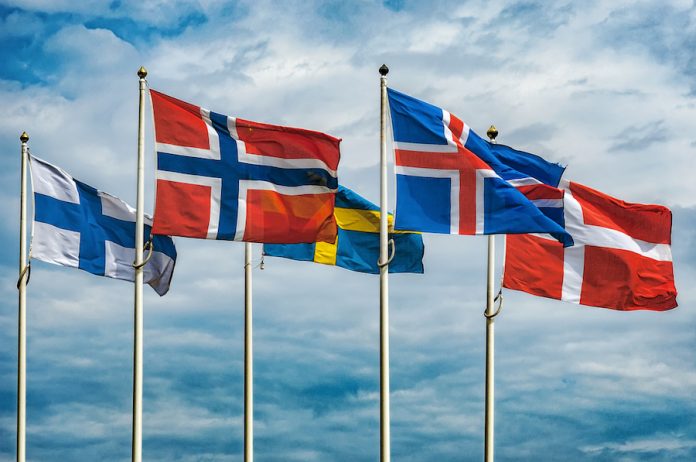For more than a decade, SMS loan products were considered a sacred cash cow within the Scandinavian banking industry. Consumers would apply for high-cost credit through a text message on their phones, with loan APRs often exceeding 150-200%.
Then everything changed.
How it all began
Mobile phones went mainstream in Norway, Sweden and Denmark around the mid-1990s. By year 2000, prices for the handheld devices had dropped significantly, helping pave the way for a sprawling multi-billion-dollar industry.
The banking industry soon took notice, introducing several new features to complement their existing services. Consumers suddenly had the opportunity to transfer money, check their balances and pay bills through their mobile phones. More importantly, they could apply for a non-collateralized SMS loan within minutes, devoid of any restrictions.
In America, such products are more frequently referred to as title loans. They are well known for their usurious rates, and are already outlawed in several states.
Authorities begin clamping down
By 2010, SMS loans had become a household consumer service in Scandinavia. A customer would typically borrow small sums, ranging from 1.000 to 5.000 kroners (approx. $110 – $550) with few, if any restrictions.
Borrowers were in turn allowed to spend their funds as they saw fit. Adding fuel to fire, consumers would often borrow funds from multiple banks, racketing up costly debt.
Scandinavian governments then decided to clamp down on the industry by passing legislation, which in effect, outlawed the product.
Norway takes action
Norway took the first step, introducing national legislation which required all lenders to run a credit check before approving an application. According to VG.no, it began in 2006, with the Norwegian treasury secretary expressing her dismay over the industry’s practices.
In effect, it meant that banks were no longer allowed to lend out small sums of money, without checking customers’ income and debt ratios.
Until then, banker’s rationale for lending out money without credit checks had been simple: Extremely high APR’s outweighed any potential losses incurred from consumers that were unable to meet their financial obligations.
According to www.billigeforbrukslån.no/sms-lån/, as the new regulations went into effect, most banks quit offering SMS loans in Norway almost overnight.
Credit checks added substantial overhead expenses to a lender’s balance sheet, while simultaneously slowing down the application process. Prospective borrowers were now suddenly required to file separate copies of both tax returns and W-2s for income verification, either through fax or mail.
Denmark introduces usury laws and time delays
Denmark took their legislative efforts a step further, introducing usury laws coupled with obligatory time delays. Lenders are now required to put a 48-hour hold on loan payouts, if the APR exceeds a certain threshold.
Furthermore, banks are no longer allowed to offer “predatory lending products” with APR’s exceeding 35%. The legal move came as a response to public outcry, after several lenders began offering “kviklån” (fast loans) with annual interest rates in excess of 800%. Unlike Denmark, Norway has yet to place any caps on annual interest rates.
Sweden – The last holdout
Sweden was long considered the last holdout in Scandinavia, allowing loan providers to operate unchecked. However, as consumer debt and personal bankruptcy numbers skyrocketed, the government was forced to take action. Prominent Swedish newspapers have reported on the issue, including Aftonbladet.se.
The Swedish government implemented new credit check requirements, mirroring those found in Norway. Until then, lenders had been allowed to offer SMS loans without credit checks, given the sums were less than 3.000 SEK (Swedish Kroners).
In addition, all commercials had to be accompanied by warning triangles, meant to inform consumers of the high cost/risks associated with the products. Danish lawmakers are also actively discussing whether they should implement usury limits, mirroring those found in Denmark.
New verification methods
The final nail in the coffin came with the introduction of a new online verification method, known as either BankID in Sweden/Norway, and Nem-ID in Denmark. These computerized chips allow users to verify their identity online, by typing in their personal passwords and a 1-time code.
As a consequence, borrowers now apply for non-secure financing through their mobile’s browser, instead of using a simple text message. For an agreement to be considered legally valid, all banks are now required to collect the user’s signature, which cannot be retrieved through a text message.
Find a Home-Based Business to Start-Up >>> Hundreds of Business Listings.


















































